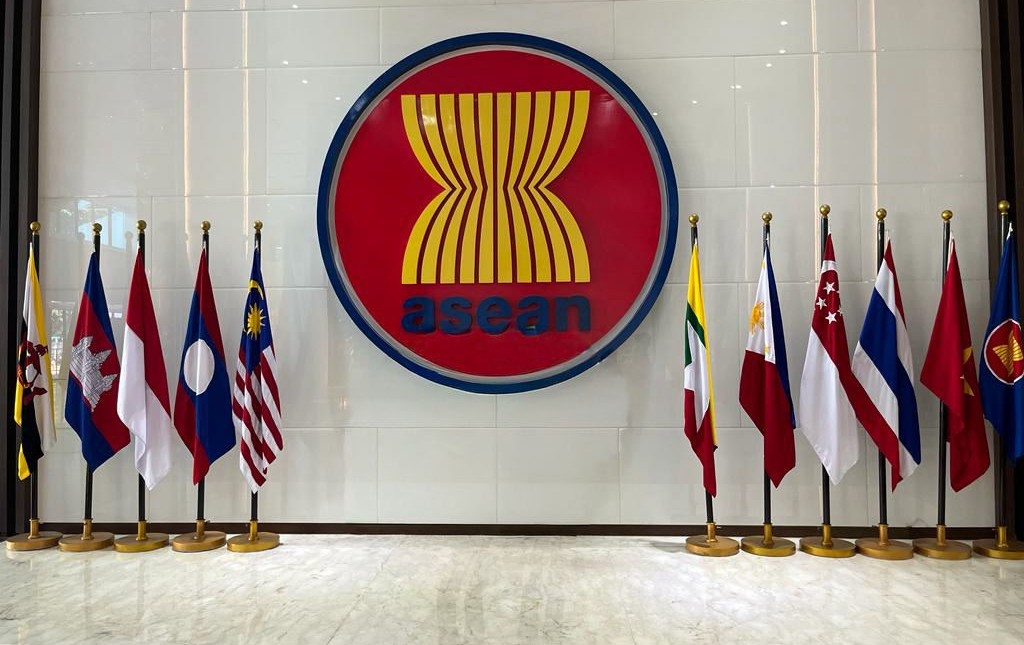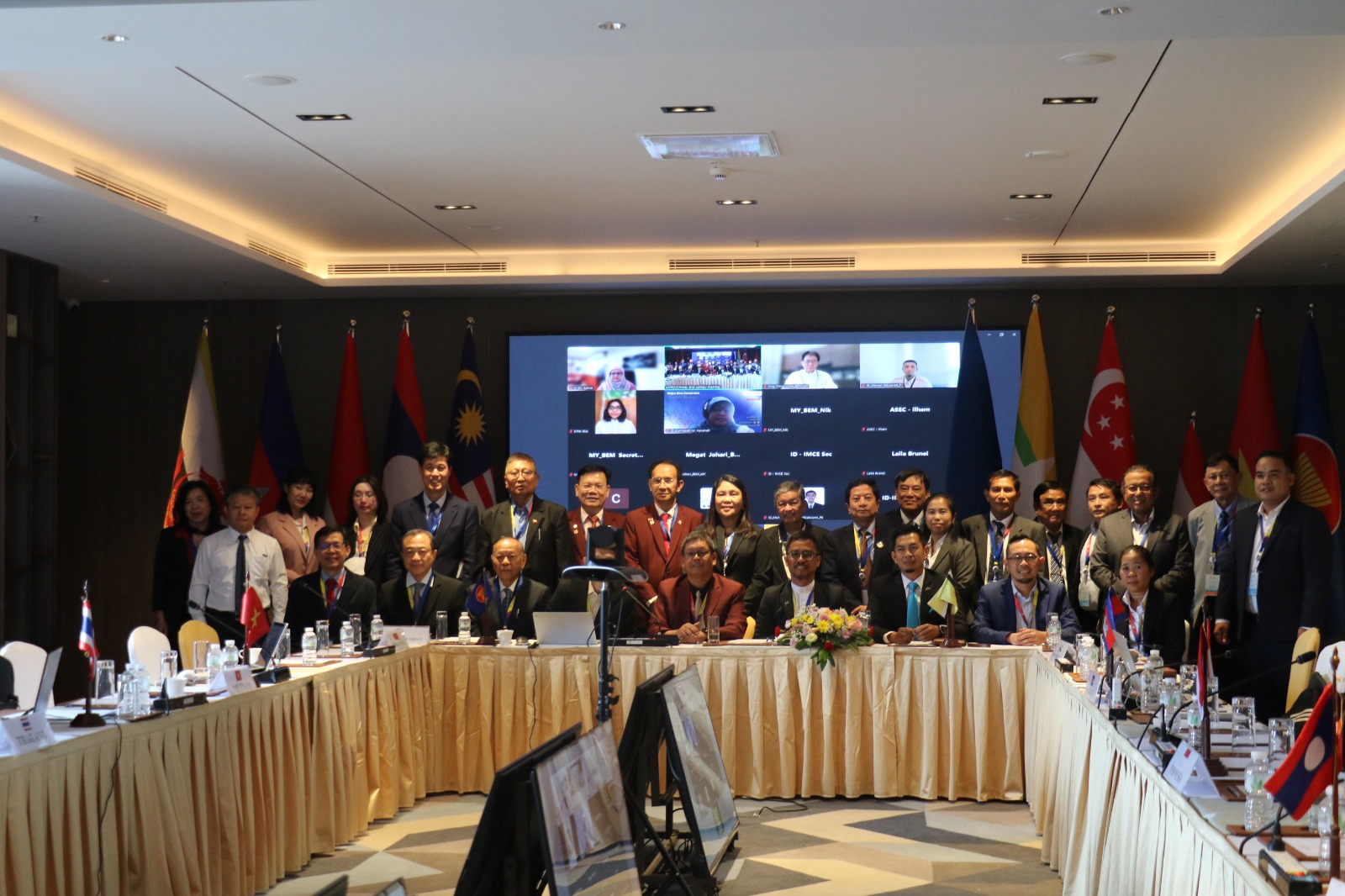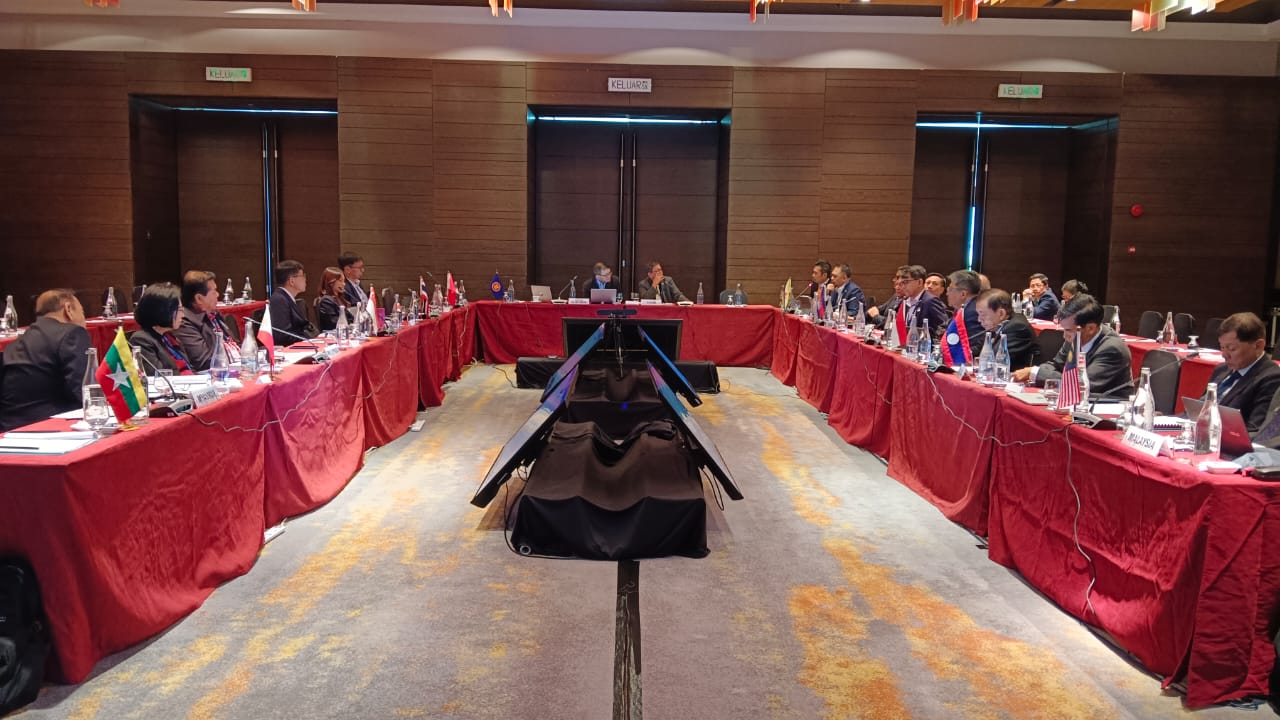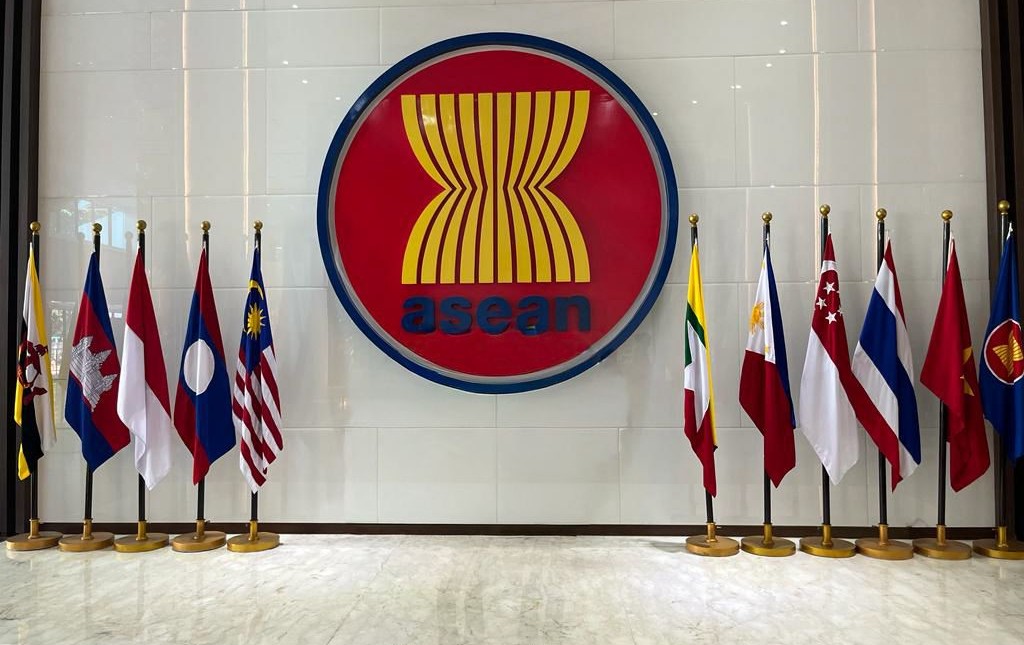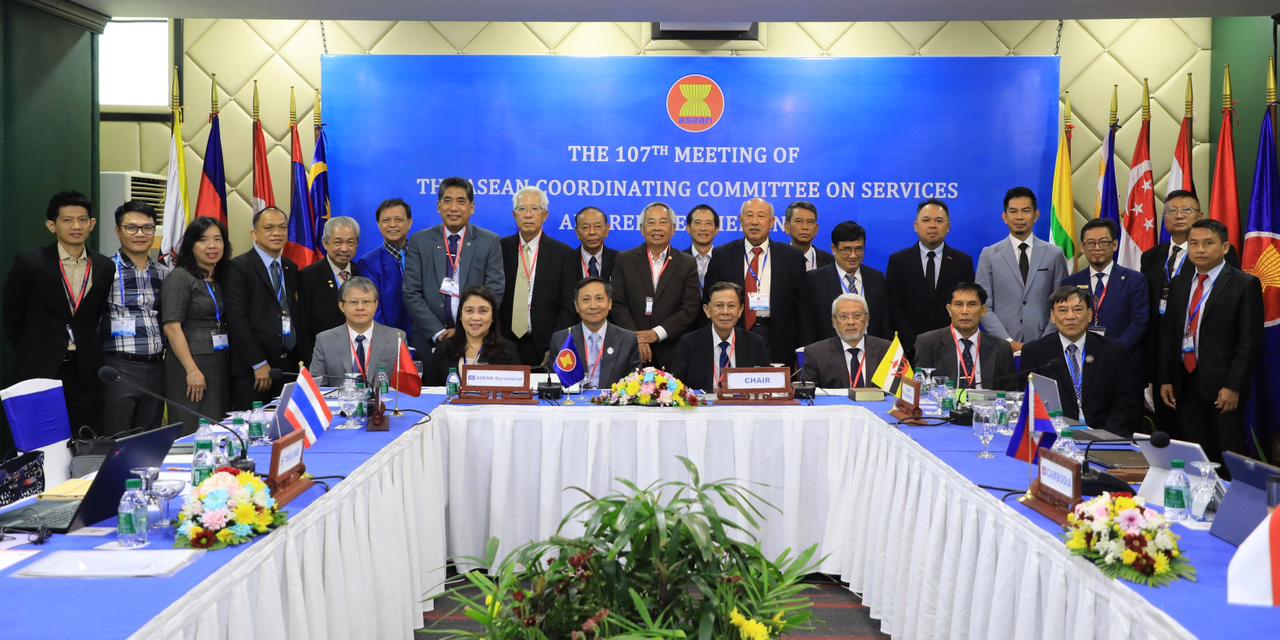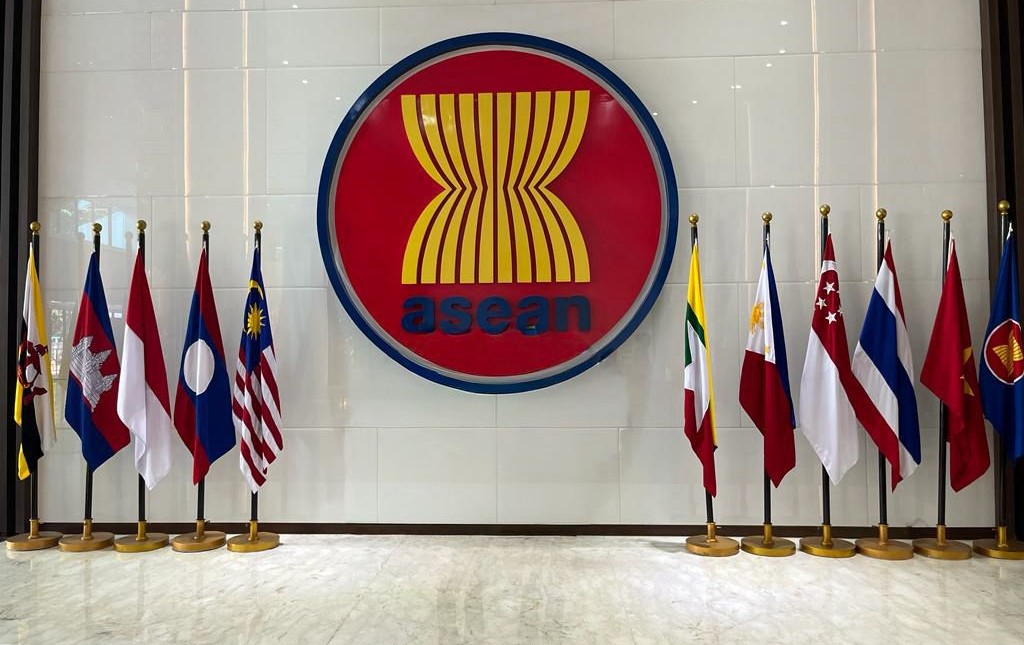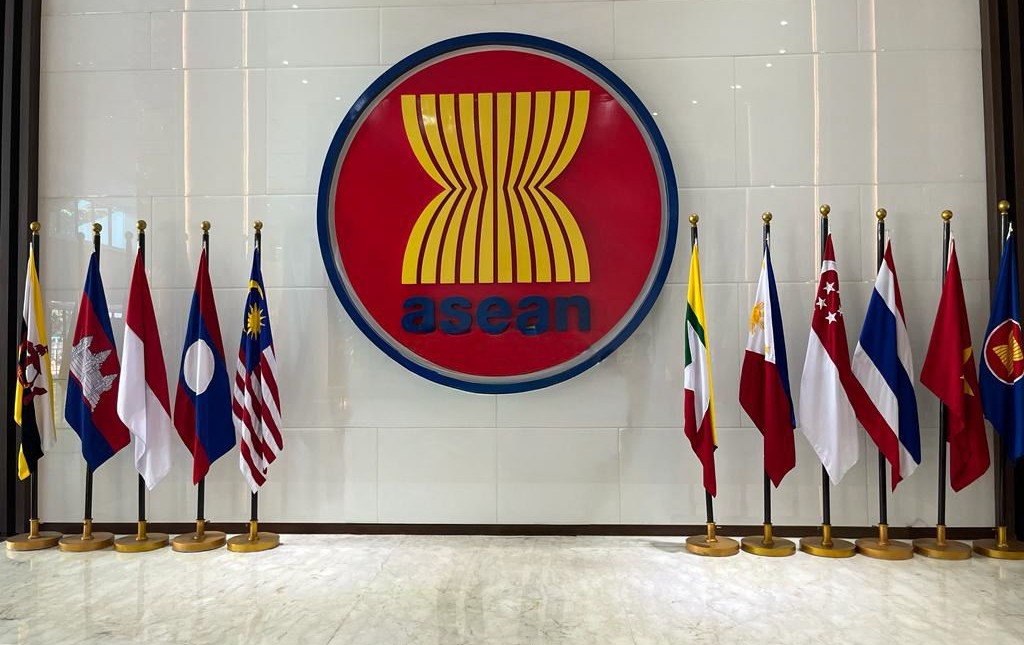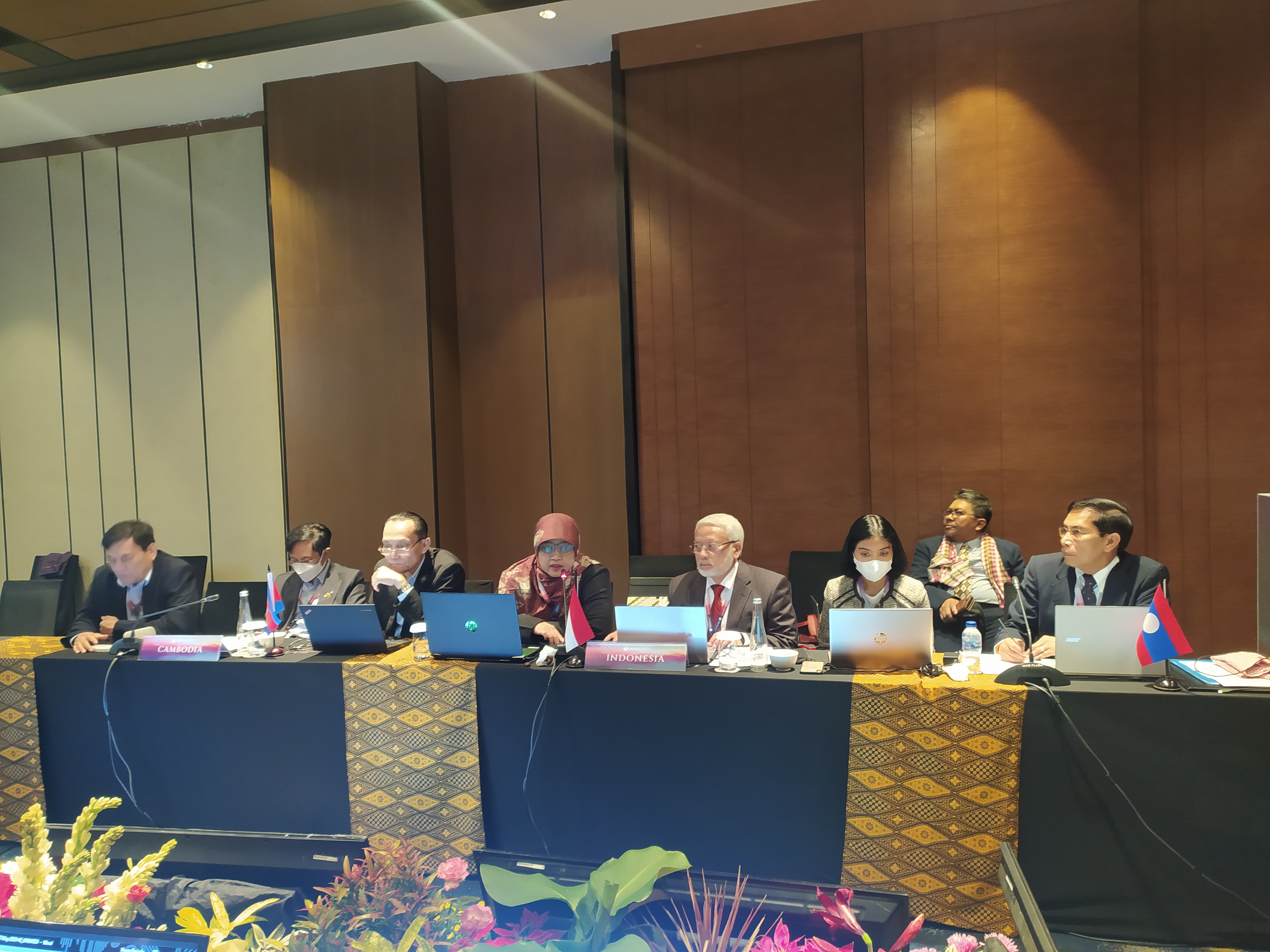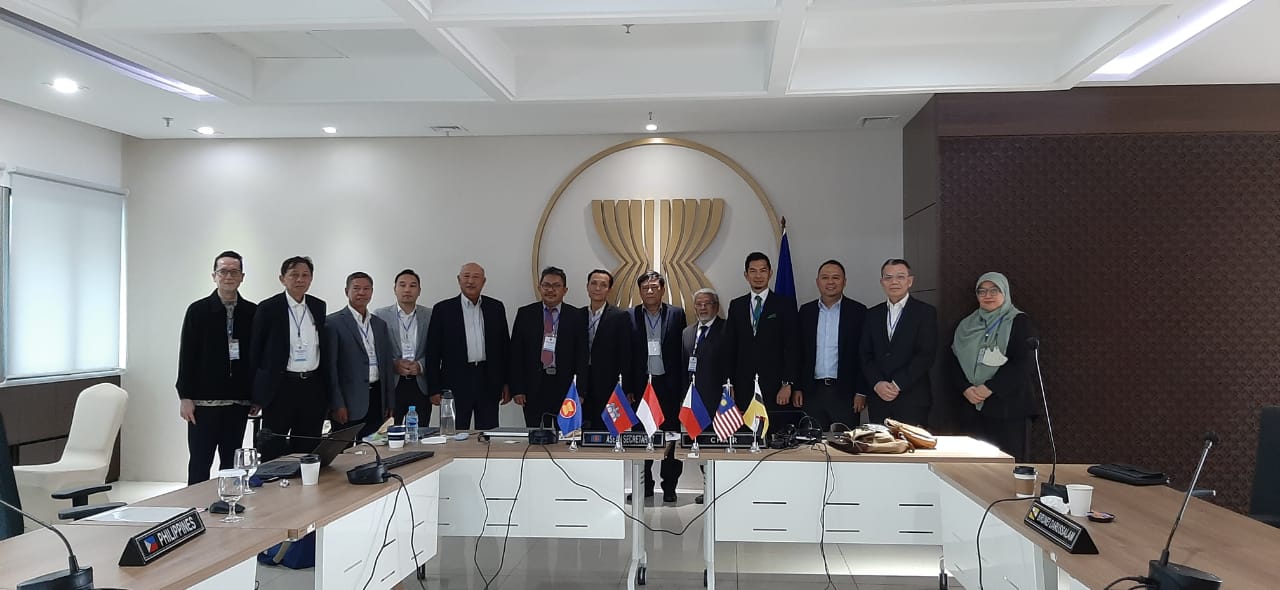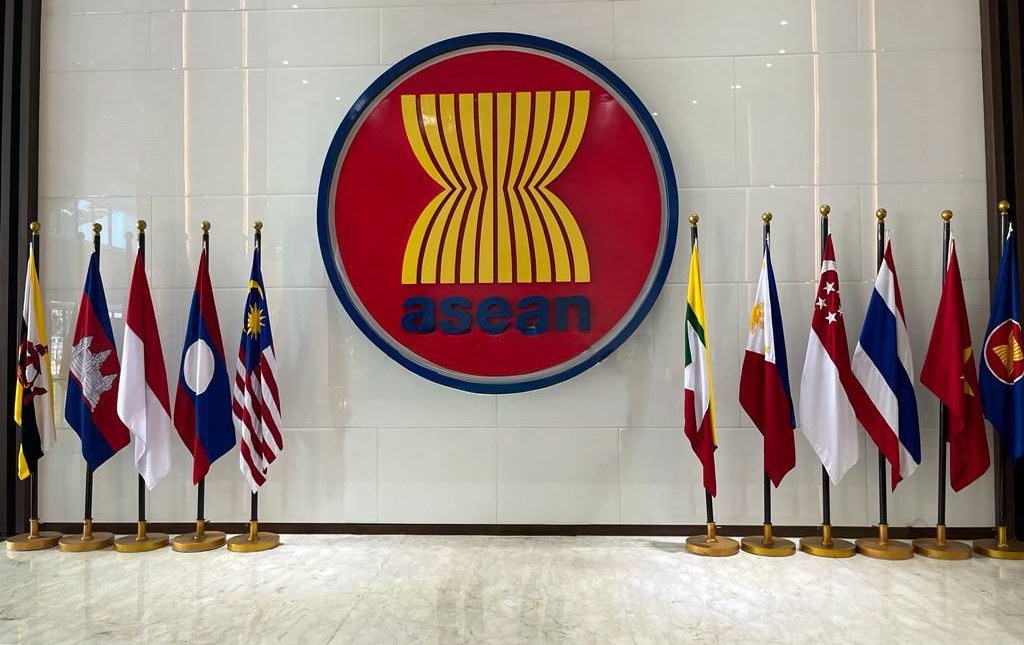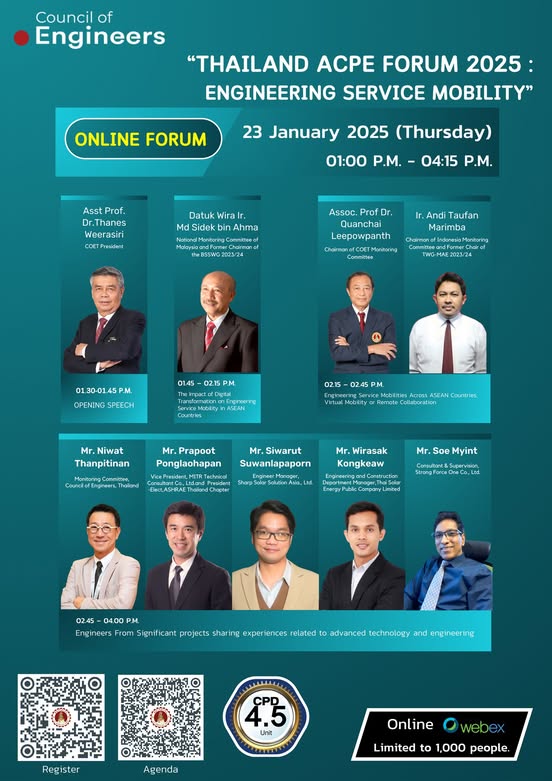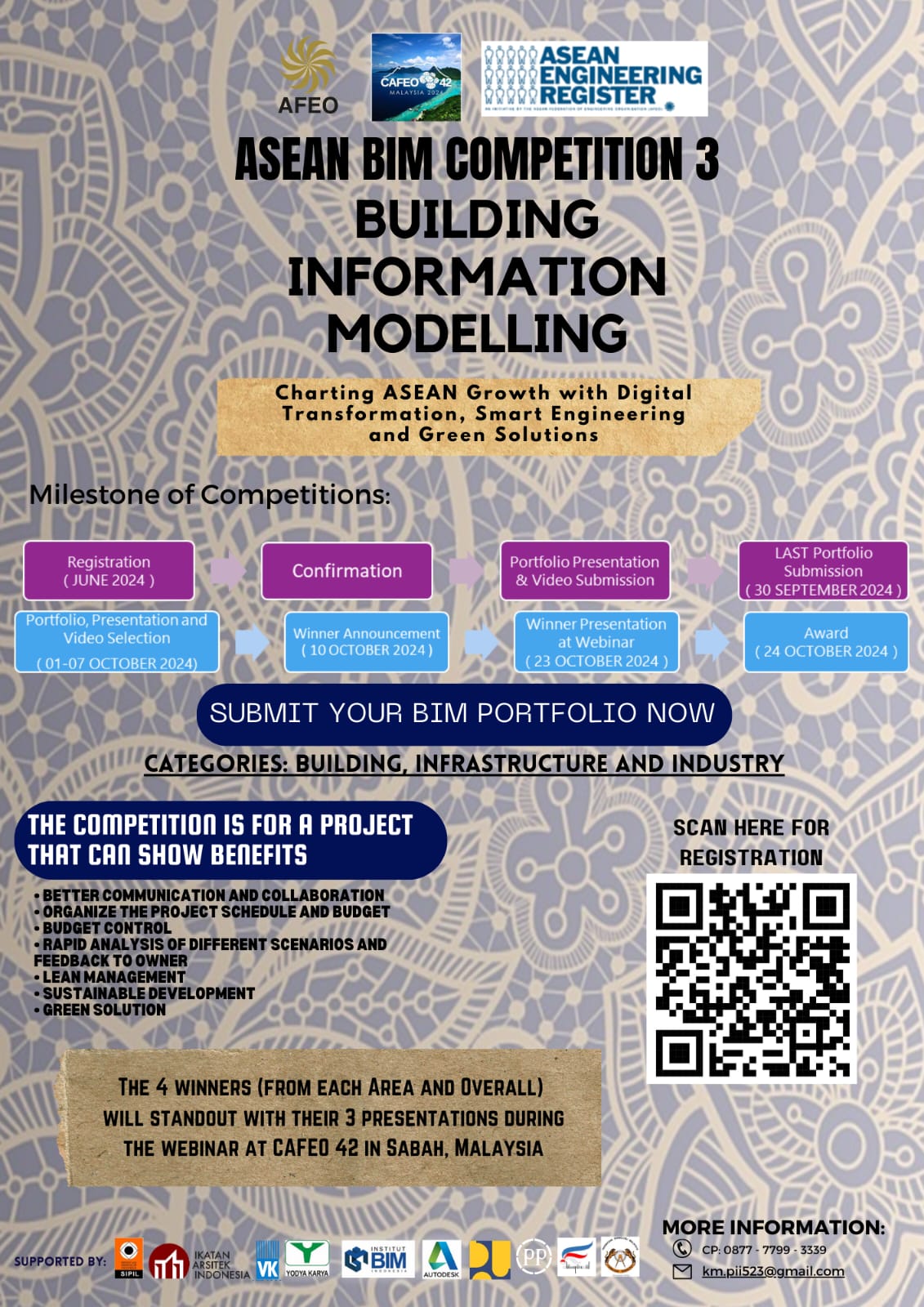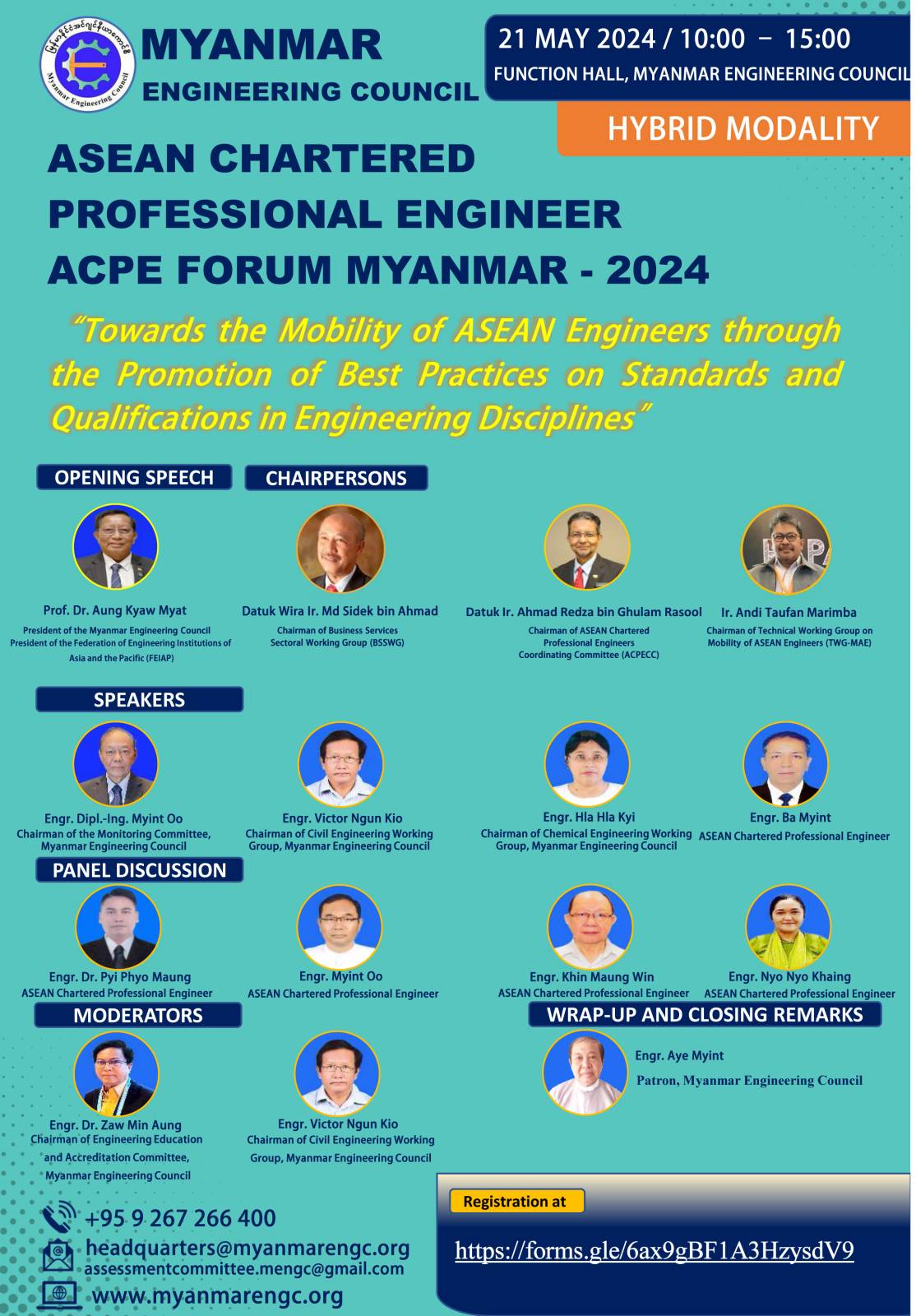 15 Oktober 2025
15 Oktober 2025 Pasay City, Metro Manila, Philippines
The ASEAN Chartered Professional Engineer Coordinating Committee (ACPECC) convened its 47th meeting, hosted by the Philippines in a hybrid format that brought together representatives from all ten ASEAN Member States (AMS). The meeting marked another milestone in the region’s effort to advance professional engineering mobility, mutual recognition, and regional cooperation.
1. Expanding the ASEAN Chartered Engineer Network
A total of 670 new ASEAN Chartered Professional Engineers (ACPEs) were approved during the meeting, bringing the cumulative total to 6,094 registered ACPEs across ASEAN.
The newly approved engineers came from Cambodia, Indonesia, Malaysia, Myanmar, the Philippines, Singapore, Thailand, and Viet Nam, reflecting strong participation and regional collaboration in advancing engineering standards and professional recognition.
2. Strengthening Assessment and Monitoring Standards
The Committee endorsed an updated Assessment Statement from Singapore, which raised the Continuing Professional Development (CPD) requirement from 15 to 20 units, aligning with evolving global engineering standards.
It also took note of updates to Monitoring Committees from several countries, including Cambodia, Myanmar, the Philippines, and Thailand, reinforcing consistent professional regulation across ASEAN.
3. Promoting Engineer Mobility Across Borders
A major discussion focused on improving the mobility of ASEAN engineers. The Technical Working Group on Mobility of ASEAN Engineers (TWG-MAE) presented outcomes from its 7th meeting, highlighting key initiatives such as:
- Information Exchange Platform – Led by the Philippines, this initiative aims to enhance knowledge sharing among ASEAN Member States.
- ASEAN Projects for Collaboration – The Committee encouraged exploring joint projects focused on energy conservation, sustainability, climate change, and disaster management to promote cross-border cooperation.
- Simplifying RFPE Procedures – Recommendations were made to streamline the Registered Foreign Professional Engineer (RFPE) registration process, including standardized forms, potential fee waivers, and simplified requirements to encourage more engineers to register.
These measures aim to make it easier for ASEAN engineers to work across borders, supporting the vision of a unified regional engineering community.
4. Enhancing Professional Recognition and Standards
Malaysia and Thailand submitted updates on their scope and definition of engineering services, reflecting national advancements and helping align qualifications across the region.
Thailand also provided further clarification on its two categories of engineering disciplines – regulated and registered – ensuring greater transparency and harmonization with ASEAN’s Mutual Recognition Arrangement (MRA) on Engineering Services.
5. Fostering Digital Access and Information Sharing
The Committee reaffirmed the use of the official ACPECC website (https://acpecc.org) as a central hub for information exchange, registration data, and updates on engineering activities across ASEAN. Member States were encouraged to review their entries to maintain accuracy and consistency.
6. Collaboration and Knowledge Sharing
The meeting also highlighted the ACPECC Roundtable Discussion, held a day earlier, featuring presentations from the Philippines, Malaysia, and Myanmar on lessons learned from the COVID-19 pandemic. The session emphasized how ASEAN engineers adapted to new challenges and the importance of resilience, innovation, and digital transformation in the profession.
7. Transition and Future Leadership
As part of the committee’s leadership rotation, Brunei Darussalam completed its two-year chairmanship at the end of 2022. Indonesia was invited to assume the ACPECC Chairmanship for 2023–2024, continuing ASEAN’s alphabetical rotation system.
The meeting also encouraged each Member State to send at least one representative physically to future ACPECC meetings to improve coordination and collaboration.









